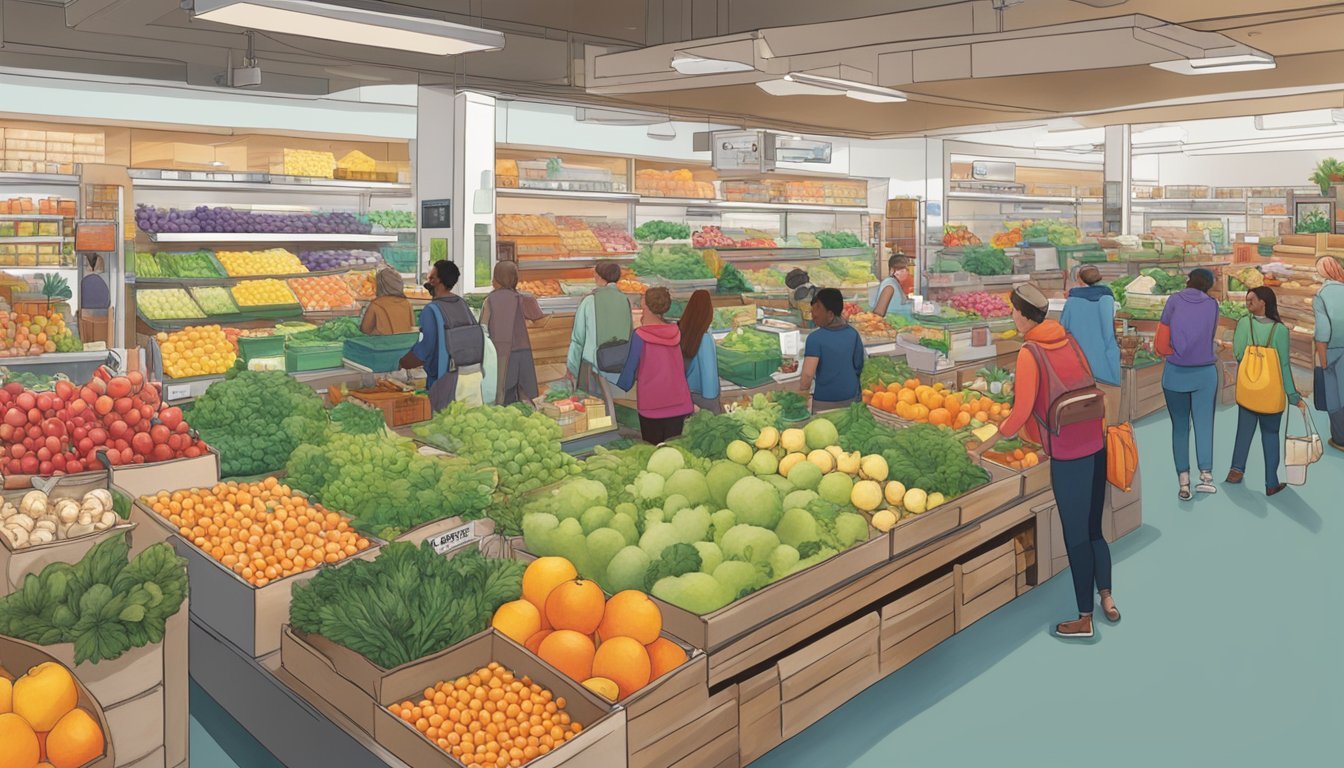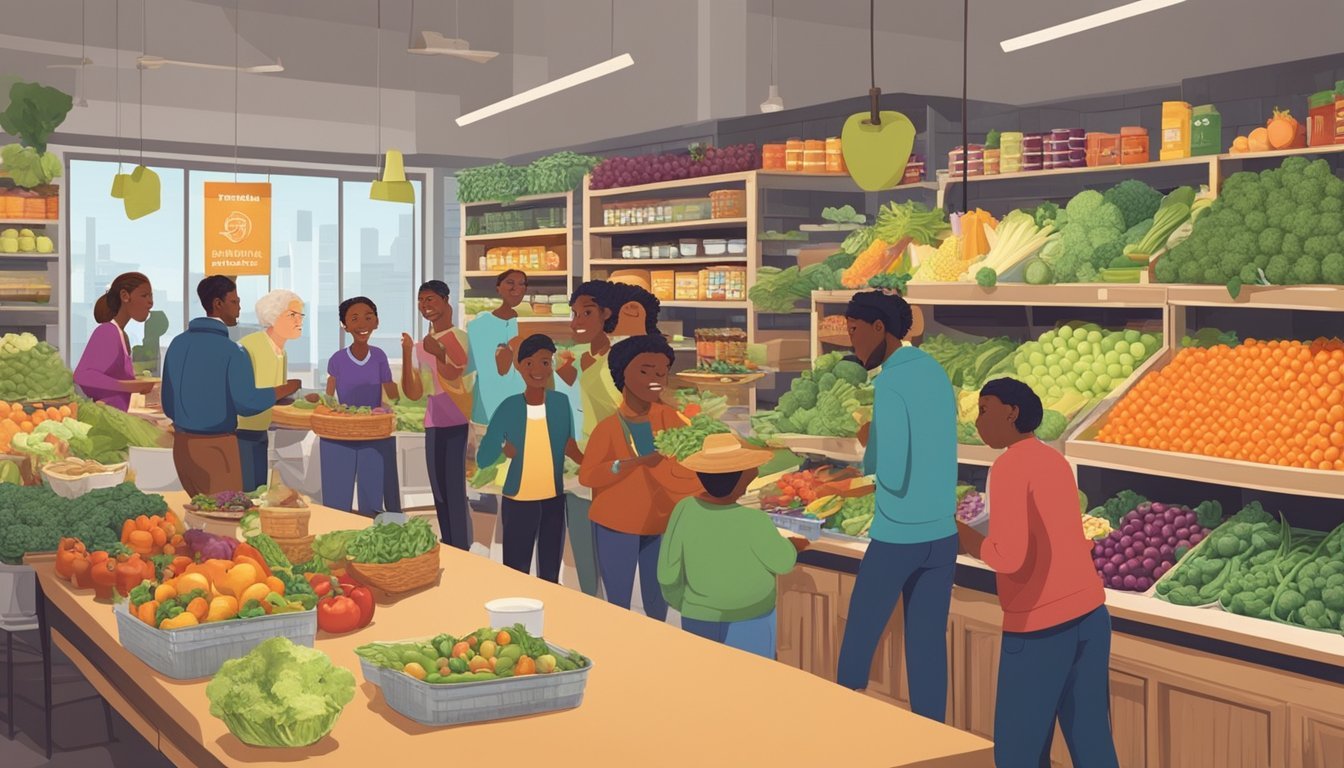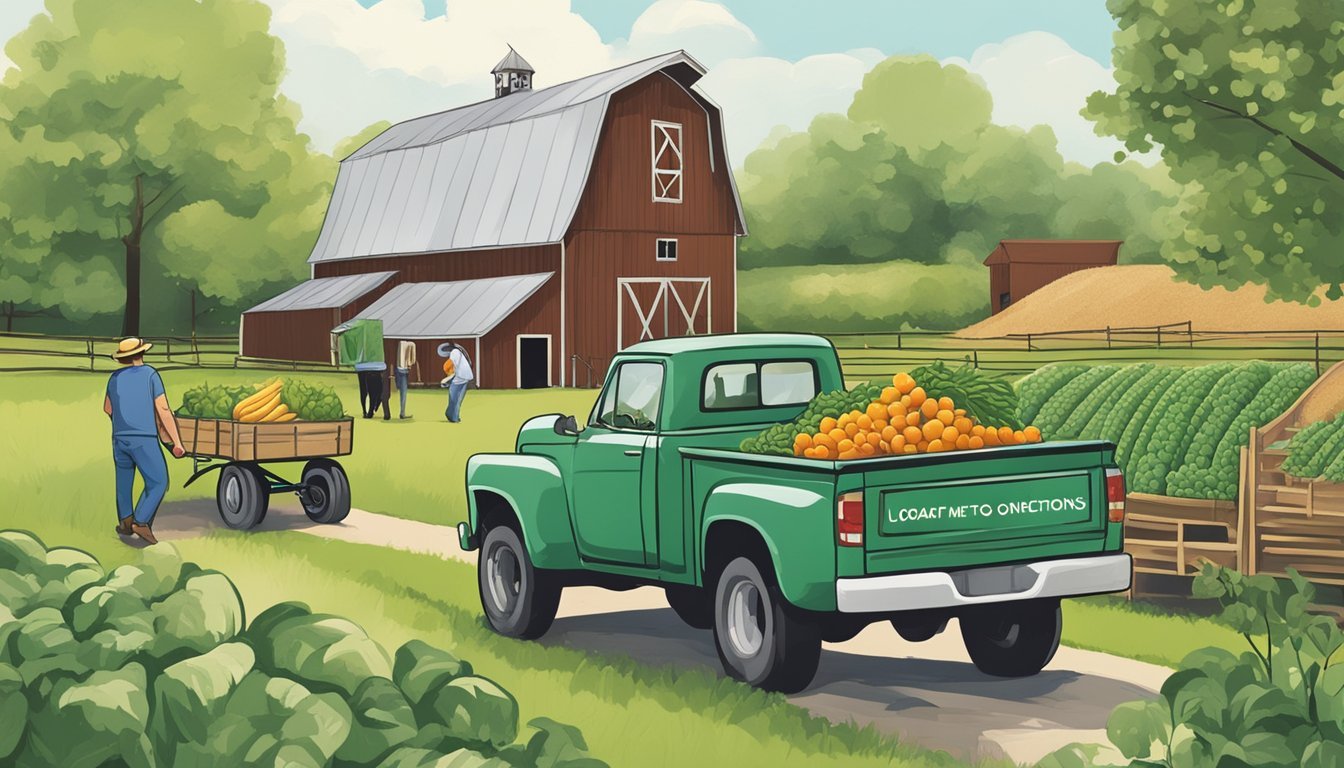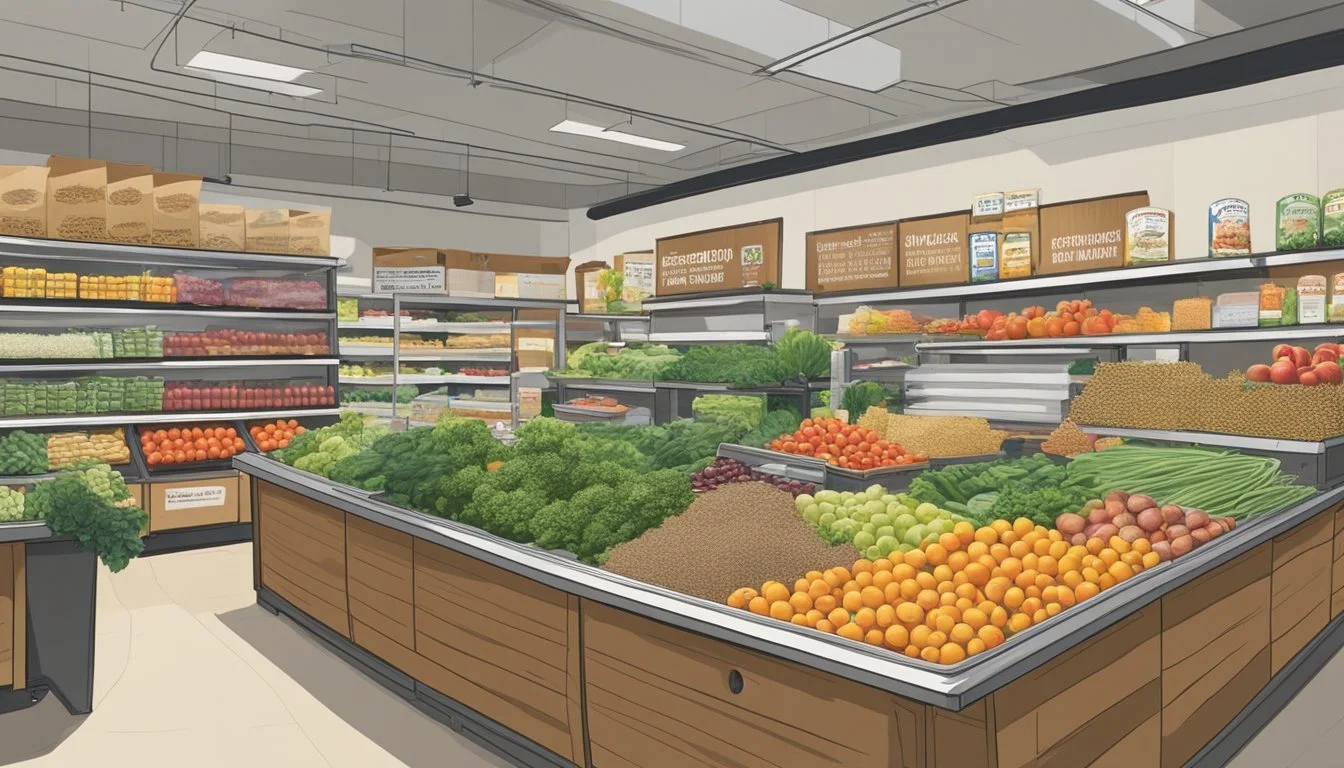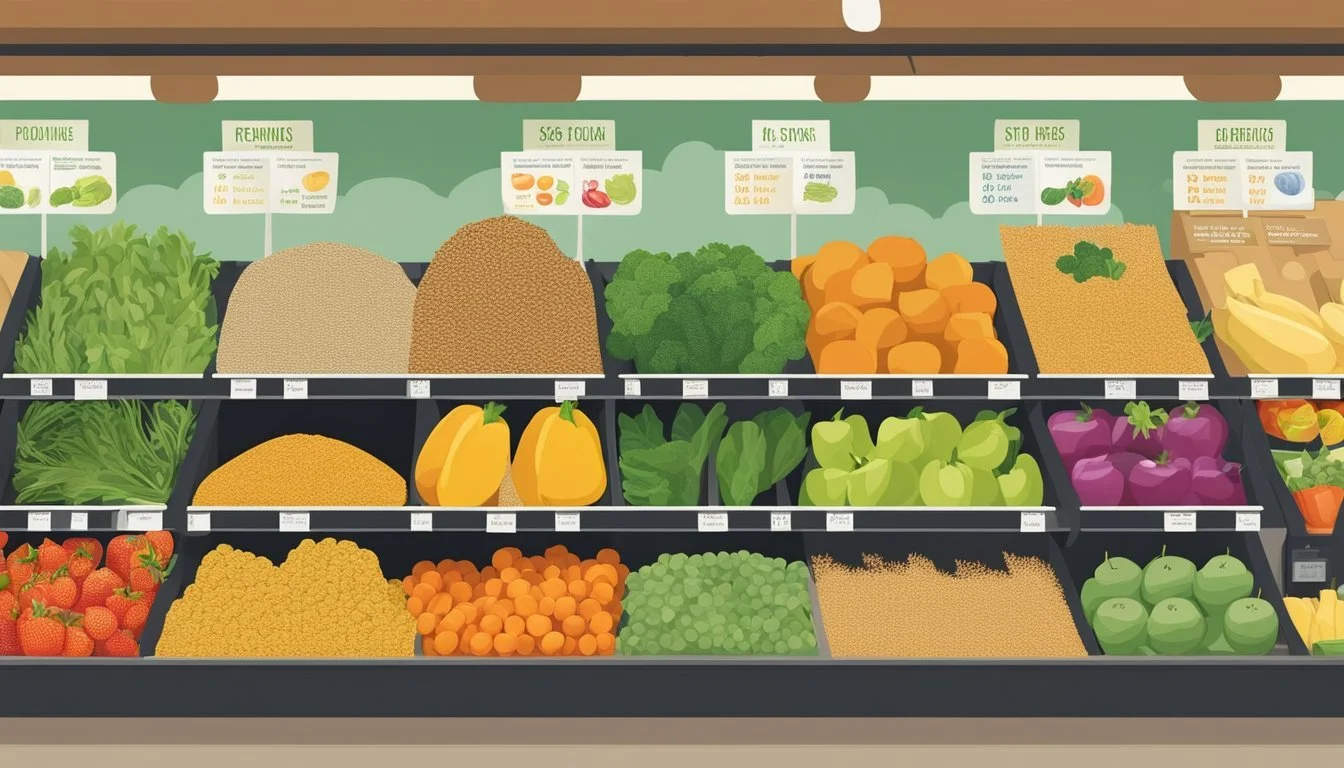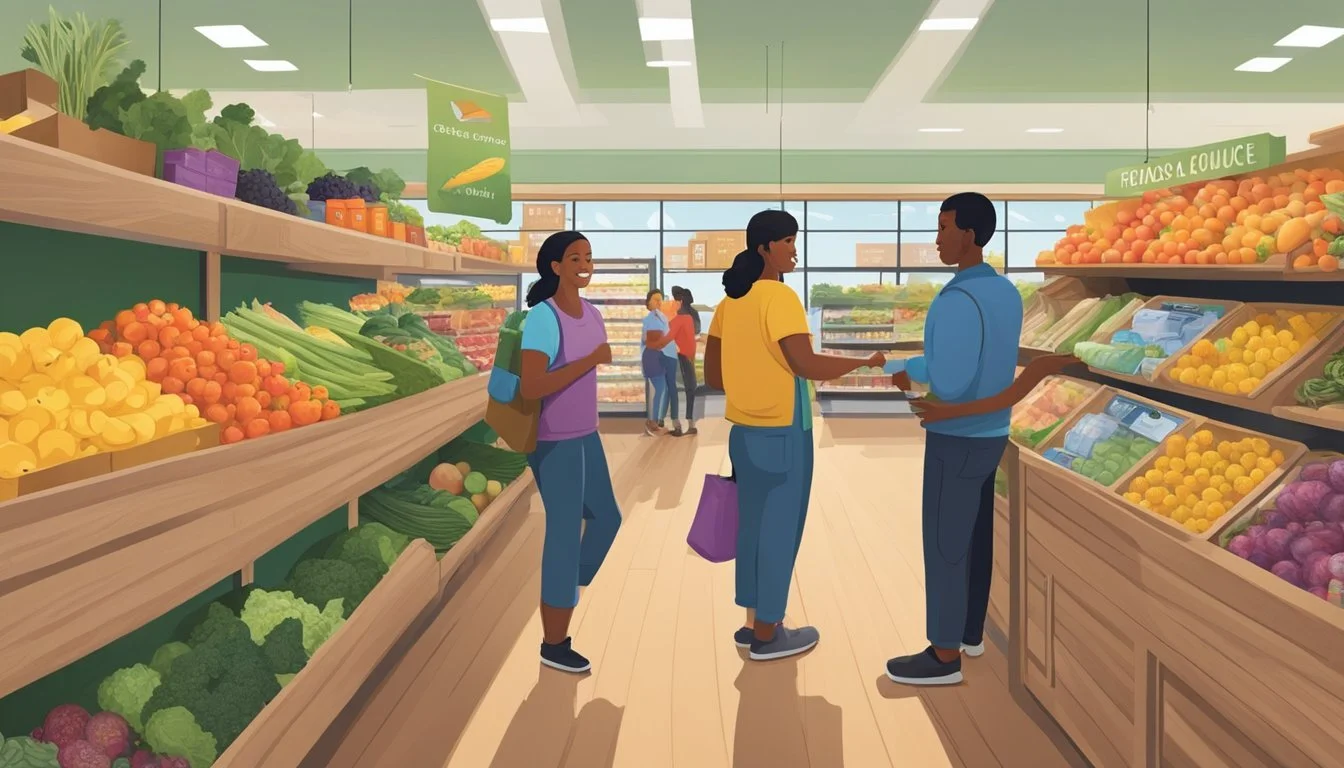Guide to Food Co-Ops in Columbus, OH
Your Roadmap to Local, Community-Owned Groceries
Columbus, the bustling capital city of Ohio, stands out not only for its vibrant culture and large student population but also for its strong sense of community and sustainable living. Among the many facets of this eco-conscious mindset, food co-operatives, or co-ops, play a pivotal role. These co-ops are community-owned food retailing outlets that operate on the principles of cooperation, aiming to provide access to high-quality, local, and often organic food products.
In Columbus, these food co-ops are more than just grocery stores; they are places where locals connect, share, and engage in the support of the local economy. The members, who own and democratically run the co-op, make decisions that prioritize the wellbeing of the community, ensuring that the produce is not only fresh but also sustainably sourced. With the rise in popularity of food co-ops in Columbus, residents and visitors alike can enjoy a shopping experience that contributes to the local food system while fostering community connection.
While the number of food co-ops in Columbus is modest, each one carries a distinct charm and a commitment to enriching Ohio's capital city. From the long-established Bexley Natural Market to newer establishments, these co-ops cater to health-conscious consumers and offer a variety of local, organic, and artisanal products. They also serve as educational hubs where people can learn about nutrition, sustainable practices, and the benefits of locally-sourced food.
Understanding Food Co-Ops
In Columbus, Ohio, food co-ops stand as a testament to the community's commitment to local food, organic options, and enhancing local food security. These member-owned establishments prioritize the freshest produce and products, reflecting a steadfast dedication to health and sustainability.
History of Food Co-Ops
Food co-ops have a storied history, often originating from early consumer movements that strived for control over food sources and economic empowerment. In Columbus, as in many other places, these co-ops can trace their roots back to groups of individuals driven by the need for quality food at fair prices. They are the modern continuations of a tradition that combines commerce with community values.
How Food Co-Ops Work
A food co-op operates on a member-owned, member-controlled business model. Members typically pay a fee to join and, in return, gain the ability to influence the co-op's product selections and business decisions. These co-ops usually sell organic and local food, providing a direct connection between consumers and farmers. Furthermore, they may offer discounts to members and frequently channel profits back into local community initiatives.
The Benefits of Joining a Co-Op
Joining a food co-op brings several advantages:
Access to Organic and Healthy Choices: Co-ops emphasize organic, non-GMO, and unprocessed products.
Local Food Commitment: They support local farmers, contributing to the community's economy and ensuring that members receive the freshest produce.
Community Engagement: Co-ops foster a sense of community through events, educational programs, and other member-exclusive activities.
Strengthening Local Food Security: By supporting sustainable agricultural practices, co-ops play a crucial role in maintaining local food security.
Guide to Columbus's Food Co-Ops
Columbus, Ohio, hosts a number of established food co-ops offering local, organic, and sustainable goods. These community-oriented markets not only support local agriculture but also serve as a staple for healthy living within their respective neighborhoods.
North Market Co-Op
North Market stands as a pivotal institution in Columbus, located just north of downtown. With its diverse vendor array, it provides a rich selection of fresh, locally sourced products. It contributes significantly to the local food scene, especially renowned for fostering a connection between patrons and growers. Regular hours for North Market extend across the week, ensuring accessibility for both the German Village area and the wider Columbus community.
Clintonville Community Market
The Clintonville Community Market, situated comfortably within the vibrant Clintonville neighborhood, emphasizes organic and health-oriented products. This co-op values environmental sustainability and local sourcing, proudly displaying a range of goods from nearby farms and artisans. Operating seven days a week, with extended hours, it serves as a convenient hub for residents to pursue a wholesome lifestyle.
Bexley Natural Market
Serving the tranquil suburb of Bexley, the Bexley Natural Market offers a meticulously curated selection of organic and natural foods, supplements, and personal care items. It's a cornerstone for health-conscious consumers, and residents appreciate the friendly service and community-focused ethos that the market upholds. The Bexley Natural Market ensures that high-quality, nourishing produce is just around the corner for the neighbourhood's inhabitants.
Membership and Participation
Food co-ops in Columbus, Ohio offer community members a way to access fresh produce, locally-sourced groceries, and support regional farmers. They require a commitment in the form of membership and active participation, which includes tangible benefits.
How to Become a Member
To become a member of a Columbus food co-op, individuals typically need to complete an application and pay a membership fee. This fee can vary but is often a one-time payment or an annual contribution. It's essential to note that some co-ops also offer sliding scale fees to accommodate low-income members.
Steps to becoming a member:
Find a co-op: Research local food co-ops that align with your needs, whether it's for local food delivery, groceries or fresh produce.
Application: Complete the application process, which may include forms and identification verification.
Fees: Pay the required membership fee, considering any available discounts or financial assistance programs.
Orientation: Attend a new member orientation, if offered by the co-op, to understand how the co-op operates and what is expected from members.
Member Responsibilities and Benefits
Members of Columbus food co-ops are typically expected to contribute to the co-op's operations. This can include volunteer work, participating in governance, and supporting local farmers and producers through regular purchases. Some co-ops may require a certain number of volunteer hours or ask members to play a role in food-related events at a local food hall or community space.
Member responsibilities include:
Volunteering: Contributing time to staffing the co-op or assisting with events.
Governance: Attending meetings and voting on important decisions.
Engagement: Supporting the co-op's mission by purchasing from local producers.
Member benefits:
Discounts: Receiving member-only discounts on groceries and products.
Quality: Having access to high-quality, fresh and organically grown produce.
Community: Being part of a community that values sustainability and local economics.
By participating in a co-op, members make a direct impact on the food system in Columbus, ensuring it remains healthy, equitable, and community-oriented.
Local Farm-to-Table Connections
Columbus has fostered a vibrant community that prioritizes local agricultural produce, illustrated by the partnerships between Ohio family farms and area restaurants. This connection enables consumers to enjoy fresh, organic foods while supporting local economies and farmers.
Sourcing from Ohio Family Farms
Krazy Kraut takes pride in creating high-quality fermented foods (What wine goes well with fermented foods?) using produce sourced directly from family farms in Ohio. This dedication to local sourcing ensures consumers receive nutrient-rich products while promoting organic agriculture. Local Yokel Foods, based in Johnstown, OH, similarly emphasizes the importance of local food security through its commitment to supplying Ohio-grown products to community members.
Local Farms Contributing to the Co-ops:
Bounty of Eden
Other Ohio Family Farms
Partnerships with Columbus Restaurants
Farm-to-table restaurants in Columbus, such as those in Bridge Park, actively collaborate with local producers to secure a supply of fresh ingredients for their menus. These restaurants ensure that if they cannot obtain particular items from their regular local suppliers, they turn to local farm cooperatives like Great River Organics or Yellowbird Foodshed for their needs. This approach not only guarantees the freshest produce for their customers but also solidifies the farm-to-restaurant relationship that benefits the entire community.
Notable Columbus Farm-to-Table Restaurants:
Alqueria Farmhouse Kitchen
SŌW Plated
Other local farm-to-table establishments
Through these efforts, Columbus demonstrates a successful model of local farm-to-table connections where the community gains access to fresh, quality ingredients while bolstering regional agriculture.
Specialty Food Offerings
In Columbus, Ohio, food co-ops serve as a nucleus for a vibrant variety of specialty foods, offering an expansive selection from organic and probiotic options to a diverse range of culturally-specific health foods.
Organic and Probiotic Options
Food co-ops often prioritize organic selections, reflecting a commitment to environmentally conscious practices and health. These establishments usually provide an array of organic staples, such as rice, bread, and pasta, ensuring that even everyday items are accessible without compromising on quality. Probiotic-rich foods, known for supporting digestive wellness, are another pillar of specialty offerings. Consumers can find products like probiotic yogurt, kefir, and an assortment of raw fermented foods, which include popular items like sauerkraut and kimchi.
Cultural Diversity in Health Foods
Columbus food co-ops also celebrate cultural diversity in their health food offerings. Customers can explore a rich tapestry of Asian healing food energetics, where ingredients such as ginger and garlic are staples, esteemed not only for their flavor but also for their therapeutic properties. These co-ops provide a platform for community members to access a wide variety of ethnic foods, from Asian tofu and noodles to Mediterranean olives and oils, highlighting the intersectionality of nutrition, culture, and wellness.
Educational Resources and Events
Columbus, Ohio offers a variety of educational resources and events focused on promoting healthy, local, and organic food through its food co-ops. These opportunities provide both practical skills in food preparation and a deeper understanding of food development and sustainable practices.
Cooking Classes and Demos
Food co-ops in Columbus offer cooking classes and demonstrations to educate members and non-members on how to prepare nutritious and delicious meals using local and organic ingredients. These hands-on experiences not only teach cooking techniques but also emphasize the importance of integrating healthy food choices into one's diet. The classes are designed to foster a community atmosphere where people can learn together and share their passion for food co-op values.
Food Co-Op Book Clubs
Local food co-ops frequently organize book clubs that cater to individuals interested in topics surrounding food, sustainability, and community development. These clubs provide a platform for education and discussion on books covering organic farming, the history of food cooperatives, and the local food movement. Participants engage in rich discussions that reinforce the co-op's commitment to education and healthy living practices.
Exploring Columbus's Rich Food Scene
Columbus, Ohio boasts an impressive food scene, marked by an array of dining establishments that spotlight local ingredients and reflect the city's diversity through a spectrum of global cuisines.
Restaurants Highlighting Local Ingredients
The Guild House in the Short North and Lindey’s in German Village exemplify restaurants emphasizing locally sourced ingredients. These eateries are lauded for their innovative approaches to American cuisine, often incorporating fresh produce and other offerings from Ohio's farms. Veritas, which originally made its mark in downtown Columbus and has since moved, continues to impress with its meticulously crafted tasting menus featuring regional elements.
Diverse Culinary Destinations
German Village's Pistacia Vera is an esteemed bakery known for its delectable pastries and desserts that beckon locals and visitors alike. Venturing further into the eclectic Columbus food tapestry, spots like Brassica in the Short North serve up bold Mediterranean flavors, while Hot Chicken Takeover delivers a spirited take on Southern comfort food across several Columbus neighborhoods.
From the streets of the vibrant Italian Village to the tucked-away corners of Columbus, food enthusiasts can traverse through an international journey with Mexican, Japanese, Chinese, Korean, Vietnamese, and Polish eateries. Budd Dairy Food Hall hosts a collective of local chefs and restaurateurs, including ventures from the beloved Columbus restaurateur Cameron Mitchell, offering a place for diners to sample a variety of foods and flavors under one roof.
Shopping for Ingredients
When it comes to shopping for ingredients in Columbus, Ohio, food co-ops offer a wealth of fresh produce and globally sourced items. These co-ops are not only a hub for locally grown vegetables and organic products but also a place where food enthusiasts can find specialized ingredients for diverse culinary endeavors.
Fresh Produce and Local Markets
Shoppers looking for fresh, organic produce in Columbus have a variety of local markets and co-ops at their disposal. LocalHarvest is a notable network where one can locate groceries near Columbus, including A Bounty Of Eden, which is renowned for its fresh vegetable selections.
Farmers' Markets: They often provide a platform for farmers to sell directly to consumers, ensuring the produce is as fresh as possible. For example, Columbus's farmers' market managers ensure a robust presence of local produce.
Food Co-ops: Places like Bexley Natural Market and Clintonville Natural Foods offer a selection of produce and bulk herbs. Such co-ops are community-centered, supporting local agriculture and providing a range of healthy options.
Global Ingredients Locally Sourced
While local produce is a highlight, food co-ops in Columbus also excel in providing global ingredients locally.
Specialty Stores: Stores like Clintonville Natural Foods cater to diverse culinary needs by offering global ingredients. Here, one can find items like rocoto, a versatile Peruvian pepper, which adds a unique flavor to dishes.
Diverse Grocery Selection: Black Radish Creamery is known for its artisanal cheeses, which are a staple for many gourmet recipes. Additionally, ethnic food trucks and markets around Columbus may offer niche items like tortillas and pancake balls, providing a taste of international cuisine with local accessibility.
Local co-ops often feature ingredients that are not typically found in conventional grocery stores, such as Whole Foods, enabling home cooks and professionals alike to expand their culinary palette with both local and international flavors.
Supporting Local Business and Development
Columbus, Ohio demonstrates a robust commitment to supporting local businesses and fostering economic development through community-driven initiatives like food co-ops.
Columbus’s Commitment to Local Enterprises
Columbus has taken proactive steps to enhance coordination among local food resources and agencies, with an intense focus on community reinforcement. City plans articulate specific strategies to support local food-based enterprises, which is a testament to the dedication to nurturing a well-connected local business scene. By prioritizing these businesses, Columbus underlines the significance of homegrown industries in community sustenance and development.
The Columbus & Franklin County Local Food Action Plan illuminates this commitment, urging city and county agencies to make programmatic decisions that bolster the local food system. This initiative not only improves the community's access to healthy, local food but also champions small business operators in the area.
Impact on the Columbus Economy
The economic impact of local enterprises, particularly food co-ops in Columbus, goes beyond simply selling products. Food co-ops are consumers of local services and products themselves, which amplifies their economic contribution. By circulating revenue within the Columbus economy, these businesses are key to sustainable economic growth and development in the area.
Data or specific economic indices pertaining to the direct impact of these local businesses on the Columbus economy are not provided, but it is widely acknowledged that their role in job creation and economic diversification is substantial. In turn, this local-centric approach serves as a catalyst for strengthening the economic infrastructure of Columbus, showcasing a dynamic model of development that other cities might emulate.
Community Engagement and Sustainability
Columbus, Ohio's food cooperatives are at the forefront of integrating sustainability with community engagement. They actively advocate for environmental issues and embrace social inclusion initiatives.
Environmental Advocacy
Food co-ops in Columbus take a bold stance on environmental advocacy. They support organic farming practices that are beneficial for the planet, reducing the carbon footprint associated with food transportation and promoting biodiversity. For instance, Green Field Farms Co-op champions these ideals by connecting with local, organic Ohio family farms. These co-ops strengthen the community's commitment to a sustainable food system that prioritizes the well-being of the environment.
Focus on Organic Produce: Prioritizes purchasing from local sources to encourage sustainable agriculture.
Energy Efficiency: Implements practices to reduce energy consumption within their operations.
Social Inclusion Initiatives
Social inclusion is key, with co-ops like Organiclea in London, United Kingdom, demonstrating the global cooperative movement's commitment to more equitable food access. While not local to Columbus, its approach is mirrored by initiatives in the city that aim to ensure all community members have access to healthy and nutritious food. The Mansfield Microfarm project combats social justice and ecology challenges, increasing fresh food access and engaging the community in agricultural practices. It illustrates the food co-ops' dedication to bolstering local economies and fostering social bonds through inclusive programming.
Educational Outreach: Offers training and resources to the community on sustainable food systems.
Local Engagement: Encourages community participation in local food production to enhance social cohesion.
Health and Nutritional Information
Food co-ops in Columbus, OH, provide an excellent platform for consumers to access health-focused foods with transparent nutritional information. They emphasize the importance of understanding nutritional content and the health advantages of locally sourced and organically produced foods.
Understanding Nutritional Labels
Nutritional labels are crucial tools for consumers to gauge the healthfulness of food products. Food co-ops often provide detailed nutritional information to help customers make informed choices. For instance:
Calories: Measure of energy the food provides.
Total Fats: Indicates saturated and trans fat content.
Cholesterol and Sodium: Important for monitoring heart health.
Dietary Fiber: Essential for digestive health.
Sugars and Protein: Key for energy and repair of tissues.
Vitamins and Minerals: Stated as a percentage of the recommended daily intake.
Labels may also highlight if the food is organic, which signals no synthetic pesticides or fertilizers were used in production, benefiting consumer health and the environment.
Health Benefits of Local and Organic Foods
A focus on local and organic foods is a hallmark of food co-ops. Local food often arrives to consumers fresher, retaining more nutrients than food that has traveled long distances. Organic foods have their own set of benefits:
Lower levels of pesticide residues, contributing to a decreased risk of health issues.
No use of GMOs (genetically modified organisms), alleviating concerns over potential health risks.
Organic farming practices are designed to sustain the health of soils, ecosystems, and people.
By supporting local food systems and organic practices, food co-ops aid consumers in their journey toward a more health-conscious lifestyle.
Conclusions and Next Steps
Columbus has embraced the food co-op movement, recognizing the significant role these entities play in fostering community connection, promoting education on healthy eating habits, and stimulating economic development. Interested individuals can take connected and effective steps to sustain and deepen the impact.
Next Steps for Enthusiasts & Consumers:
Join a local food co-op to support the local economy and gain access to fresh, locally-sourced products.
Participate in workshops and events to increase understanding of nutritious food choices.
Actions for Community Developers:
Encourage the formation of additional food co-ops in underserved areas to improve access to quality food options.
Facilitate partnerships between food co-ops and educational institutions to expand community outreach.
Educators and Advocates can:
Integrate food literacy programs into co-op activities to enhance community knowledge about health and nutrition.
Collaborate with local co-ops to provide practical learning experiences related to sustainable agriculture and food justice.
For Ongoing Development:
Assess the impact of existing co-ops to identify areas for improvement and expansion.
Engage with policy makers to establish supportive frameworks that encourage the growth of food co-ops.
By taking these steps, those involved can ensure that Columbus remains at the forefront of the co-op movement, leveraging it as a tool for health, sustainability, and community empowerment.

